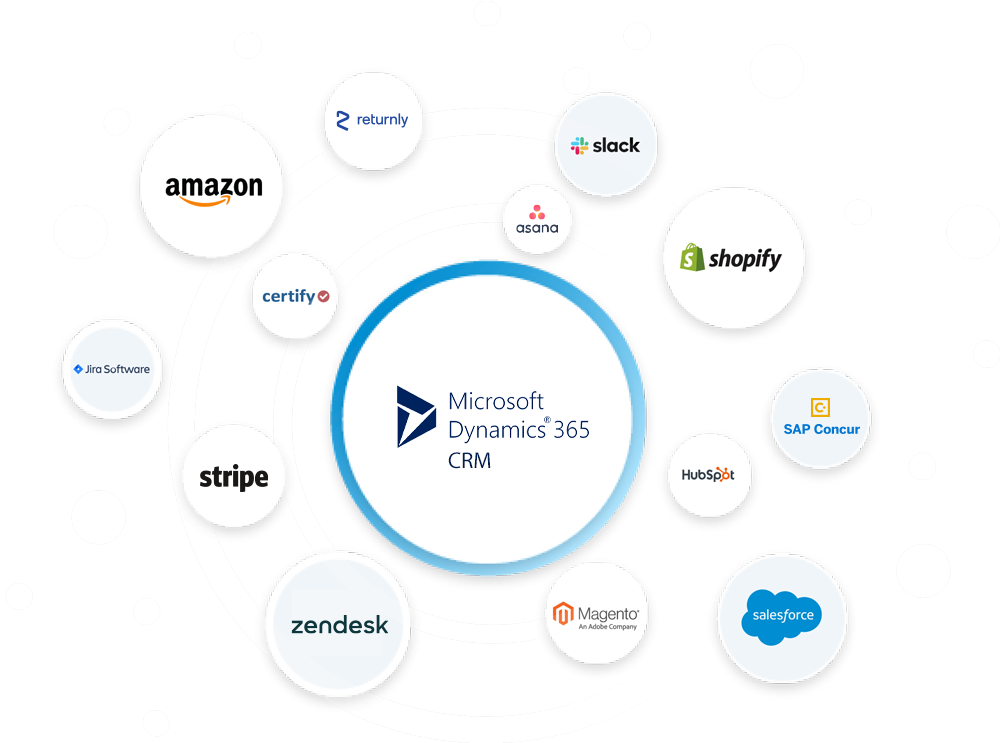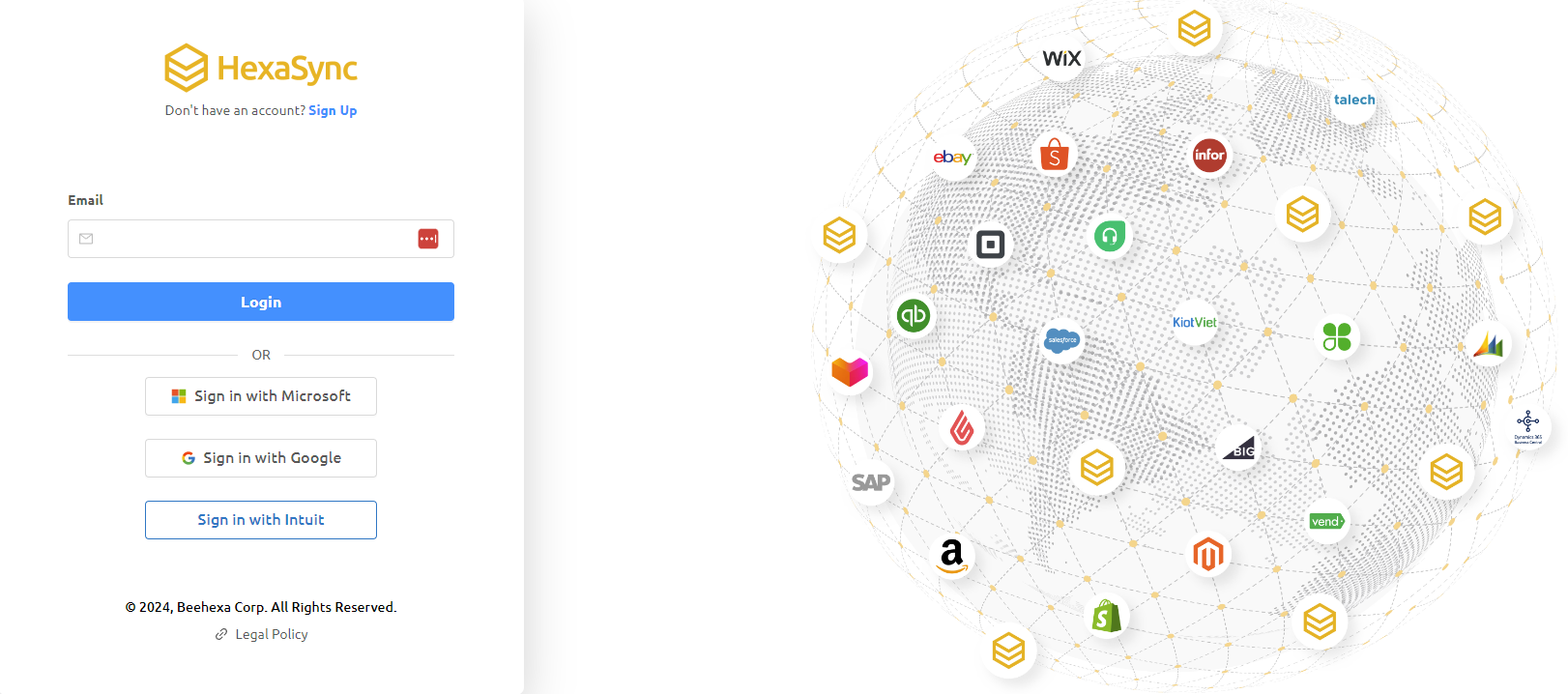Adopting the Microsoft Dynamics 365 integration is a strategic move that can revolutionize your operations. This guide will delve into the benefits of Dynamics 365, from enhancing data management to boosting customer engagement. Whether you’re a small business or a multinational corporation, leveraging Dynamics 365 can significantly streamline processes and accelerate your journey toward achieving strategic objectives.
What is Microsoft Dynamics 365 integration?

Microsoft Dynamics 365 integration refers to the process of connecting Dynamics 365 with other business systems to enhance operational efficiency and data coherence. This integration enables seamless data flow between Dynamics 365 and external applications or services, optimizing business processes, improving customer insights, and facilitating more informed decision-making. By connecting and transforming disparate systems via APIs, businesses can achieve a unified view of their operations, leading to better resource management and customer experiences.
Microsoft Dynamics 365’s market share varies according to different sources. Some estimates suggest that anywhere over 40K companies are using Microsoft Dynamics 365. In the ERP market, Microsoft Dynamics has a market share of 26.44%, competing with other major players like Workday, SAP ERP, and SAP S/4HANA. Moreover, according to Precision Reports, the global market size was evaluated at over $5000 billion in 2024 and will reach over $12000 by 2027.
Components of Microsoft Dynamics 365 Integration

Microsoft Dynamics 365 integration encompasses a wide range of profiles designed to enhance various aspects of business operations by ensuring seamless communication and data exchange between Dynamics 365 and other systems. Here’s a look at some of the key components:
- eCommerce Dynamics 365 Integration:
Simplifies online sales by integrating eCommerce platforms with Dynamics 365, automating inventory, orders, and customer analytics for a cohesive online sales strategy. Enhances the customer experience with personalized services and efficient fulfillment.
- POS Dynamics 365 Integration:
Improves retail operations by connecting in-store sales data with Dynamics 365, offering real-time inventory and sales insights, streamlining management of both physical and online sales, and improving stock levels and customer service.
- CRM Dynamics 365 Integration:
Centralizes customer data in Dynamics 365, enriching sales, marketing, and service efforts with detailed insights. Supports targeted marketing and effective communication, enhancing customer relationships and engagement.
- ERP Dynamics 365 Integration:
Boosts operational efficiency by integrating ERP functions with Dynamics 365, automating processes across finance, supply chain, and more. Ensures departmental data coherence, supporting informed decision-making and operational streamlining.
- Accounting Dynamics 365 Integration:
Automates financial tasks and reporting by integrating accounting software with Dynamics 365, minimizing manual work and errors. Offers real-time financial insight, eases compliance and supports efficient auditing.
- Marketplace Dynamics 365 Integration:
Facilitates expansion and operational efficiency by synchronizing Dynamics 365 with multiple marketplaces. Automates product listings, orders, and inventory management, ensuring a unified and effective omnichannel sales approach.
Why we need to integrate Dynamics 365?
Microsoft Dynamics 365, a powerful suite of Microsoft CRM and Microsoft ERP systems, is essential for streamlining business operations. However, integrating it with other systems, including additional ERP and CRM solutions, is crucial to achieving a fully interconnected and comprehensive business technology ecosystem.
Each business has unique processes, tools, and data sources that are critical to its operations. Integrating Dynamics 365 with other systems allows for the seamless flow of data across the organization, eliminating data silos and enhancing data accuracy.
Dynamics 365 integration allows businesses to utilize the unique strengths of various systems while keeping a unified view of operations and customer interactions. It supports informed decision-making, tailored customer experiences, and efficient operations, crucial for competitiveness in today’s dynamic market.
Transformation with Microsoft Dynamics 365 integration
Integrating Microsoft Dynamics 365 into your business operations marks the beginning of a transformative journey, streamlining processes and enhancing efficiency across the board. It’s a 2-way interaction of processes: transform products, engage customers, empower employees, optimize operations, and others.
Transform your product
The transformation might begin with your products, leveraging Dynamics 365 to gain insights into market trends and customer needs, thus enabling the development of products that truly resonate with your target audience. This integration facilitates a data-driven approach to product development, ensuring that your offerings are innovative and precisely tailored to meet and exceed market expectations.
Engage your customers
The next phase focuses on engaging customers. The powerful Dynamics 365 integration provides a 360-degree view of customer interactions, preferences, and feedback. This comprehensive understanding allows businesses to deliver personalized experiences, effectively engaging customers at every touchpoint. By leveraging the power of advanced analytics, companies can anticipate customer needs and craft bespoke marketing strategies, fostering loyalty and driving growth.
Empower your employees
Empowering employees is a critical component of the transformation journey. Dynamics 365 integration streamlines internal processes and provides employees with the tools and data they need to excel in their roles. Access to real-time information and collaborative tools within Dynamics 365 enhances decision-making and productivity, enabling teams to deliver superior results. Furthermore, this empowerment leads to a more motivated workforce capable of innovating and confidently driving the business forward.
Optimize your operation
The main core is optimizing operations, which fulfills all the potential of Dynamics 365 integration. By automating workflows and refining business processes, Dynamics 365 helps identify inefficiencies and pinpoint areas for improvement. The ERP capabilities of Dynamics 365 ensure that resources are used effectively, supply chains are managed efficiently, and financial performance is closely monitored. This optimization of operations lays the foundation for sustainable growth, operational excellence, and a competitive edge in the marketplace.
How to integrate your Microsoft Dynamics 365?

Implementing the Microsoft Dynamics 365 CRM integration requires knowledge of Dynamics 365 and other systems. As we mentioned above, if you have coding skills, you can use APIs (web APIs, SOAP APIs, and REST APIs) to access and connect data. On the other hand, if you are not an expert, seek to work with the third-party integration platform to configure mapping and triggers between Microsoft Dynamics 365 CRM and other applications.
HexaSync by Beehexa, now available on Microsoft Appsource, is an iPaaS integration platform that facilitates data synchronization via APIs across multiple systems, even legacy and SaaS applications. Working as a middleware, HexaSync can connect and transfer data from the sources to the destinations. It is also easy to use for non-tech users, allowing them to monitor and detect errors if they’re not relevant to professional technical.
Conclusion
In conclusion, Dynamics 365 integration is key for businesses seeking transformation. It enhances efficiency, empowers employees, improves customer engagement, and optimizes operations for growth and competitiveness. If you need to implement Microsoft Dynamics 365 integration, please contact us.
